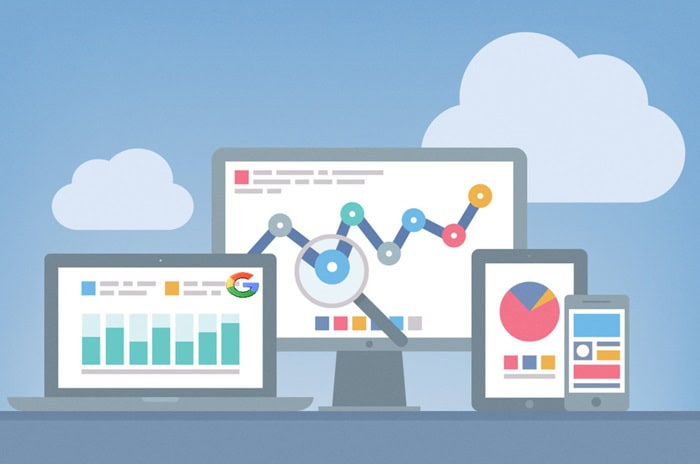The latest Google Search Off the Record podcast dug into important aspects of SEO. It included a thought-provoking segment on how SEO experts can gain advantages by realigning their perspectives on traffic with potentially more significant objectives.

Is Traffic a Benchmark for Success?
One common misconception among search marketers is measuring success solely through traffic statistics. Frequently, we encounter posts on social media or articles on blogs where marketers share their accomplishments, emphasizing a significant surge in traffic within a few months for a client.
This practice extends to link builders, content writers, and SEO professionals alike—all using traffic as a key success metric. However, the important question that arises is, what impact did this have on sales or ad clicks?
If the revenue remains stagnant despite the spike in traffic, it’s likely that the increase in visitors may not be as meaningful, and the SEO efforts invested may not have contributed significantly.
When you consult pay-per-click experts or affiliate marketers about the value of conversions compared to traffic, the consensus is evident: conversions take precedence over traffic.
Adam J. Humphreys, CEO of the search marketing and design consultancy Making 8, shared his perspective on success metrics:
“I focused on analytics early on and learned the language of business which is ROAS. This is all executives care about other than awareness.
Our job is to grow their business first as well as awareness second.
Many don’t know how to measure attribution from SEO.
Things like form fills and calls are almost always unmeasured and unreported. Clients get super excited when I talk about this because it’s almost like nobody ever cared about their success.”
What Google Says About SEO & Traffic
Martin Splitt asked the question about the business impact of traffic.
Martin asked:
“…when you say traffic drops, what does that mean to you? Is it impressions?
Are you going to Search Console and click on the Performance report and you just look at the impressions going down or clicks?
Or do you actually measure a real business impact? Like you’re selling only half as many things as you used to sell last month?”
John Mueller shared his insights on the matter, attempting to elucidate why SEO professionals often overlook the importance of return on investment (ROI) or the influence of SEO on earnings. He ventured a guess that perhaps the time lag between implementing SEO and witnessing its impact might be a contributing factor.
You can also read: SEO Metrics: What are they and why do they matter?
He commented:
“Usually what I see from people is that they focus on the traffic on their site.
And they look at something like Analytics and they say, ‘Oh, I get so many visitors and so many visitors from search engines. And that number went down significantly.’
…And the aspect of ROI or kind of the value of that traffic, I see that as something that a lot of these SEOs tend not to focus on primarily, because my assumption is it’s just a very long lead time there.
Like you can turn your website off now, but you might still have people who are kind of like paying for something for a while.
And then, it’s like, wow…”
Mueller expanded on his reflections regarding why SEOs might not prioritize earnings. He dug into the limitations of using website traffic as a metric, emphasizing that it can be misleading since it merely reveals what happened without providing insights into the reasons behind those occurrences.
He continued:
“But I do think it’s something where I sometimes feel it’s misleading to just purely focus on the traffic.
And I see that with our sites as well. A year or two ago, we would rank for the word “Google” in Canada or something like that, the search documentation, of course.
I hope the Google website ranks for the word Google. But like the Search documentation would rank for the word Google somewhere on the first page.
And we got tons of traffic there, but all of that traffic was basically irrelevant.
And then if you only look at the traffic and all of that irrelevant traffic goes away, then it might look like you lost a lot of traffic, but actually it’s like all of those things are people that weren’t relevant for your site anyway.
So you almost need to look at the bigger picture of all of the traffic that’s gone, but also keep in mind like, well, a lot of this was useless and I should maybe focus on the queries that people use, and then clicks and impressions for those, or individual like lower level pages of the site and kind of track those a little bit more.”
You can also read: Effective SEO Techniques To Grow Organic Traffic
Traffic And Search Engine Optimization
SEOs often showcase their expertise through case studies highlighting the increased traffic resulting from their efforts. However, these studies can be empty or even misleading if they fail to include any reference to the subsequent boost in sales.
Similar practices are observed among link builders who emphasize the multitude of links they’ve secured for a client, occasionally noting a rise in traffic. Yet, akin to SEOs, they consistently omit any mention of the effects on sales or earnings.
The question arises: Why do they engage in this approach? It’s plausible that many SEOs may lack firsthand experience in establishing and monetizing businesses through affiliate sales or ad clicks, thus offering a limited perspective from that side of the SEO spectrum.
Contrastingly, many traditional SEO practitioners gained knowledge by building and monetizing websites. This could be attributed to the fact that client-focused SEO work was not as prevalent back then as it is today.
While using traffic as a metric proves valuable for assessing the impact of SEO, it’s important to recognize that traffic should not be the ultimate goal of SEO. This is because there are different types of traffic—some convert into sales, some have a lead time from the initial visit to a sale, and some are instrumental in brand building. On the flip side, there’s also irrelevant or unproductive traffic.
When addressing declines in traffic associated with ranking changes, it becomes essential to evaluate whether there is a corresponding impact on sales. If not, understanding why the traffic drop had no financial repercussions is crucial. This analysis can guide a reevaluation of content and SEO strategies, potentially steering them in a more effective direction.
Would you like to read more about “Google Update on Traffic Metrics and SEO” related articles? If so, we invite you to take a look at our other tech topics before you leave!










